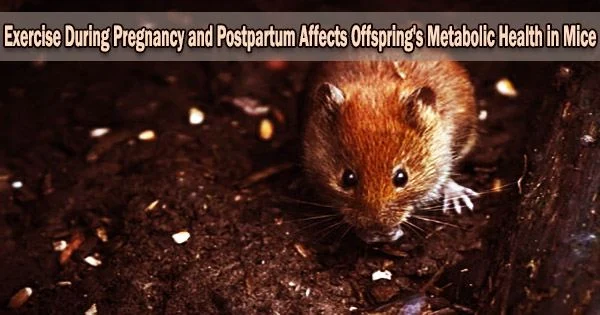Kristin Stanford, a professor of physiology and cell biology at The Ohio State University College of Medicine at the Wexner Medical Center, conducted a mouse study that offers fresh insights into how parental exercise enhances the metabolic health of offspring.
The study, which was co-led by Laurie Goodyear from the Harvard Medical School and Joslin Diabetes Center, was posted online in the journal Diabetes.
This study employed mice to examine how the metabolites of their offspring were changed by their lifestyle choices, including eating fatty foods vs. healthy foods and exercising vs. not.
The body creates or uses metabolites as it breaks down food, medications, chemicals, or its own fat or muscle tissue. The creation of energy and the components required for development, reproduction, and preserving health is known as metabolism. Particularly for type 2 diabetes and cardiovascular disease, metabolites can act as disease indicators.
“Tissue metabolites contribute to overall metabolism, including glucose or fatty acid metabolism, and thus systemic metabolism. We have previously shown that maternal and paternal exercise improves the health of offspring. Tissue and serum metabolites play a fundamental role in the health of an organism, but how parental exercise affects offspring tissue and serum metabolites has not yet been investigated. This new data contributes to how maternal or paternal exercise could improve metabolism in offspring,” Stanford said.
Other studies have connected the parents’ poor nutrition to the development of type 2 diabetes and decreased metabolic health. Researchers looked into how parental exercise training in the presence of high-fat food affected the metabolic health of the kids in this study.
We have long been interested in the role of parental exercise to improve offspring metabolic health. These data are a next step in learning mechanisms for how this works.
Professor Kristin Stanford
The effect of mother exercise, paternal exercise, and the combination of maternal and paternal activity on the metabolite profile in child’s liver, skeletal muscle, and blood serum levels was studied using targeted metabolomics, the study of metabolites.
“We have long been interested in the role of parental exercise to improve offspring metabolic health. These data are a next step in learning mechanisms for how this works,” said Stanford, who is a member of Ohio State’s Dorothy M. Davis Heart and Lung Research Institute and the Diabetes and Metabolism Research Center.
According to this study, all types of parental exercise improved the whole-body glucose metabolism in children as adults. Metabolomics profiling of the serum, muscle, and liver of the children also shows that parental exercise has extensive effects across all classes of metabolites in all of these offspring tissues.
“Any insight into how these tissue metabolites could be regulated could help us understand how tissue metabolism works and offer some ideas to benefit or improve tissue glucose or fatty acid metabolism. This could eventually lead to developing new therapeutic tools or targets to improve metabolism,” Goodyear said.
Future research will clarify the precise role of exercise in mediating these metabolites and establish their contribution to the improvement of offspring health, particularly in the muscle and liver.
Funding from the National Institutes of Health supported this research.





